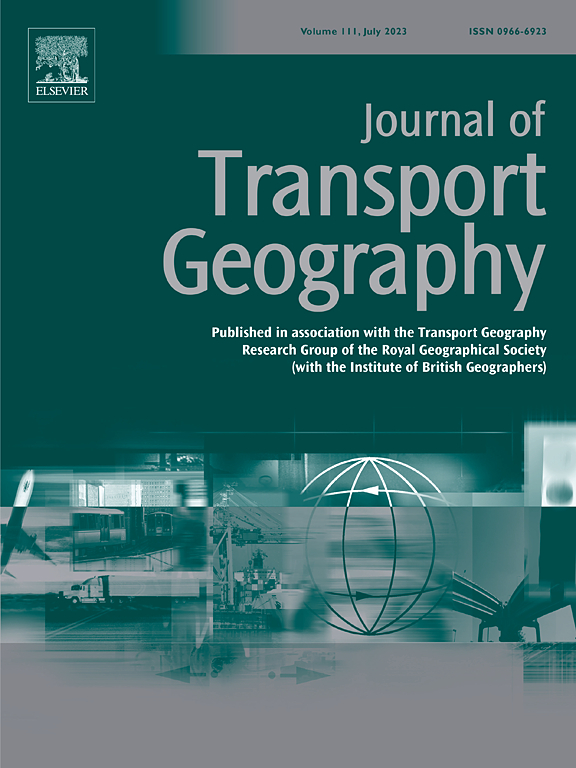以时间换空间:在北京,居住空间是否能调节通勤时间与心理健康之间的关系?
IF 6.3
2区 工程技术
Q1 ECONOMICS
引用次数: 0
摘要
以往的研究表明,通勤时间长和居住空间不足与个人心理健康状况不佳有关。然而,大多数研究将二者视为独立的因素,只关注心理健康的一个维度。为了弥补这些不足,我们利用 2018 年北京的调查数据,重新审视了通勤时间与无心理疾病(抑郁)和有积极心理健康(幸福)之间的关系,并检验了居住空间是否以及在多大程度上调节了通勤与心理健康之间的关系。结果表明,通勤时间和居住空间与心理健康的两个维度都有显著相关性。此外,居住空间对通勤时间与抑郁之间的关系有准调节作用,但对幸福感的调节作用不明显。这意味着,"用(通勤)时间换取(居住)空间 "的方法可能对没有精神疾病很重要,但对有积极的主观幸福感却不是有效的方法。本研究呼应了均衡位置理论,但认为通勤时间对心理健康的负面影响可能会被住房条件的好处部分弥补。本文章由计算机程序翻译,如有差异,请以英文原文为准。
Trade time for space: Does living space moderate the relationship between commuting duration and mental health in Beijing?
Previous research has shown that a long commuting duration and shortage of living space are associated with poor mental health in individuals. However, most studies have regarded the two as separate factors and have focused exclusively on one dimension of mental health. To address these gaps, we use survey data from 2018 in Beijing to re-examine how commuting duration is associated with both the absence of psychological illness (depression) and the presence of positive mental well-being (happiness), and to test whether and to what extent living space moderates the commuting–mental health relationship. The results show that both commuting duration and living space are significantly associated with the two dimensions of mental health. Furthermore, living space has a quasi-moderating effect on the association between commuting duration and depression, but the moderating effect is insignificant for happiness. This implies that the “trade (commuting) time for (living) space” approach might matter for the absence of mental illness, but this is not an effective approach for the presence of positive subjective well-being. This study echoes the equilibrium location theory but argues that the negative effects of commuting duration on mental health might be partially compensated by the benefits of housing conditions.
求助全文
通过发布文献求助,成功后即可免费获取论文全文。
去求助
来源期刊

Journal of Transport Geography
Multiple-
CiteScore
11.50
自引率
11.50%
发文量
197
期刊介绍:
A major resurgence has occurred in transport geography in the wake of political and policy changes, huge transport infrastructure projects and responses to urban traffic congestion. The Journal of Transport Geography provides a central focus for developments in this rapidly expanding sub-discipline.
 求助内容:
求助内容: 应助结果提醒方式:
应助结果提醒方式:


